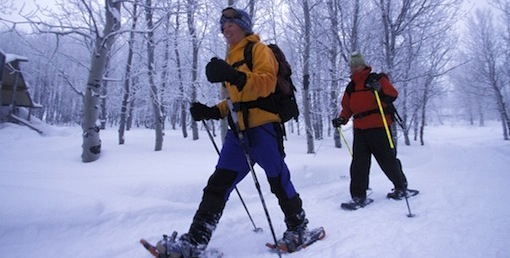Absopure
(un)Filtered
3 Spring Break Essentials to Keep in Mind
Spring Break participants young and old look to this seasonal tradition as an opportunity to get away from the daily grind and have a bit of fun. Whether relaxing on a beach, tearing up the slopes or making do with some R&R at home, the week is a break from the norm.
Because Spring Break can often mean people participating in activities outside of their routine, it is easy to miss telltale signs of “overdoing it.” Even a Spring Break at home might involve hours in the backyard, so no activity is free from possibly harmful side effects. Here are a few tips to make sure that your Spring Break doesn’t lead to a bad time for your health:
Hydrate. Dehydration is a common issue faced by people who spend all day in the sun in warm climates. However, you can run into problems even in cold weather areas as well. Skiing and snowboarding are enjoyable sports that are also solid workouts — anyone who has spent a day on the mountain can vouch to the soreness felt the day after. While it may seem obvious to take breaks for water while playing beach volleyball or swimming, it is just as important to hydrate during cold/winter related physical activity.
No matter where you travel, whether it be far or close during Spring Break, our conveniently sized bottled water will fit nicely in between suitcases or in a cooler.
Use sunscreen/lotion appropriately. Similar to the hydration issue, people participating in winter-based activities may not think about using sunscreen due to all their layers. The problem, though, is that not every portion of skin is covered by coats, hats and gloves, which can lead to significant sunburn in portions of the face (or uncovered arms). Not only is it common to forego using sunscreen during winter Spring Break activities, it is also not used enough during warmer activities. Make sure the SPF aligns with your skin type, as well as the sun levels at the time, even if you are simply doing chores outside the house.
Don’t sacrifice your diet. Though vacation is often an excuse for gorging on all the food “not allowed” normally, keep things within the boundaries of reason. Going too far with junk food or items not commonly eaten can cause problems internally that can limit your fun. Kids staying home for break, for example, should not be making junk food like chips, cookies, etc., their staple diet while enjoying video game marathons. Try not to “cheat” on your normal regiment of eating sparingly, while still enjoying some things you consider a treat. Doing so will make the transition back to your normal eating habits easier while limiting how hard you will need to work to get into pre-vacation shape.
Though Spring Break is, at its core, an escape from the norm, this does not mean possibly hazardous or unsafe habits should emerge. Plan appropriately for your trip or stay-home retreat with measures to preserve your health so the 51 other weeks of the year are pleasant as well.





